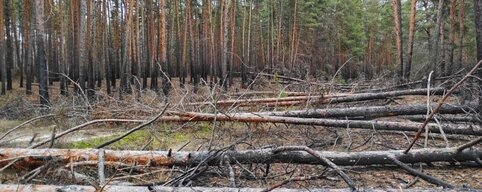
Forests play a central role in both tourism and ecology, and their importance extends far beyond the obvious benefits of fresh air and scenic views. Forests provide crucial biodiversity and generate significant economic revenue for local communities through ecotourism. Tourists are attracted to forests to enjoy the wonders of nature, observe wildlife and understand local ecosystems. This nature tourism, in turn, provides necessary funding for conservation efforts and creates jobs for local people.
The TUI Care Foundation has taken this realization to heart and is expanding its forest conservation projects in different parts of the world, including Zanzibar, Kenya and Gran Canaria. With a combination of technology, local expertise and global vision, these projects aim to promote sustainable tourism and nature conservation. One of the most ambitious initiatives includes the planting of over 100,000 trees, which will have a long-lasting impact on both the ecological balance and local economies.
A specific example of these efforts is TUI Forest Zanzibar, where as many as 63,000 trees are being planted in Masingini Forest National Park near Stone Town. This area has long been under threat from urban sprawl and deforestation. The project aims to restore previously lost woodlands and act as buffer zones to protect against further urban invasion. Increasing forest cover will improve local biodiversity and create a better climate for wildlife to thrive.
In addition to the planting itself, a major part of the effort is to educate the local community on environmental issues and forest management. Through various educational initiatives and workshops, local people are given the opportunity to learn about the importance of conservation and how they can actively participate in this work. These training programs also act as a catalyst to create local community leaders in sustainable tourism and environmental management.
Creating protection zones around threatened forest areas is another part of the strategy. Identifying and officially protecting these zones not only prevents damage to the ecosystem but also helps to raise environmental awareness within the local community. The protected areas act as living laboratories, where visitors can learn about the importance of ecosystems and how they directly affect life on Earth.
These projects are part of a larger global effort to promote forest conservation and create economic development in harmony with nature. The TUI Care Foundation shows that by bringing together local knowledge with global awareness, it is possible to create solutions that are sustainable in the long term. With the right support, these initiatives can become models of how tourism and ecology can coexist and even benefit each other.
The way forward looks bright if more actors are inspired by similar projects and take responsibility for the future of the forest. By building bridges between tourism and conservation, it is possible to create a world where both people and nature can thrive together.


